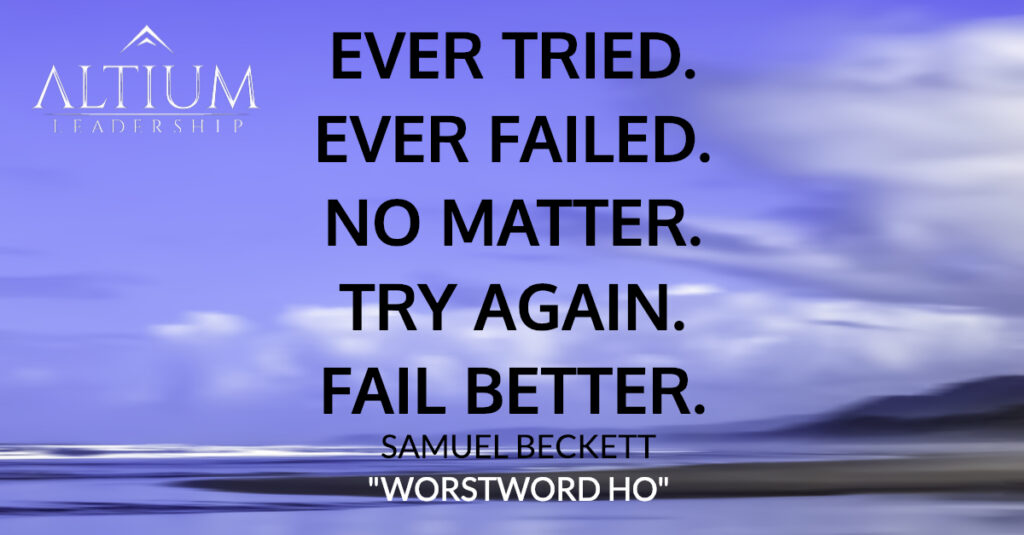My article “Are You Failing Enough?” Was recently discussed in a podcast. Also discussed was an opposing view from an article titled “To Be Successful, Stop Learning From Failure”.
The idea of positive psychology looks at how we can be the best. I agree with idea of looking to successful examples, role models and mentors. I disagree with their premise that failure makes us feel better about failing. The purpose of learning from failure is to execute and perform at a higher level. I agree with Angela Duckworth’s research on Grit. Grit is about finding your passion and persevering. I believe it is impossible to avoid failure in life no matter how much you study the success formula(s) of others. Your success depends on how you respond to failure. Because you will encounter it. Do you learn and move forward, or do you implode because you followed the “success” steps and it didn’t work.
Here is another way to look at it. I have known many students who were considered very bright in high school. I am a recruiter for the David Eccles School of Business at the University of Utah. I see kids who are in the top of their class in high school get accepted to a great college. They are then competing with a large group of successful students and they are no longer the top of their class. They have only experienced and learned from their “success” according to the positive psychology model. They experience stress and anxiety and are paralyzed by failure. This causes some to check out and give up. It is often the students who persevere through failures that achieve the best results.
It is my experience we want to set goals for learning not performance. If it is only outcomes we focus on, it will be harder for us to learn and grow. Stanford Psychologist Carol Dweck conducted a series of experiments that demonstrate our concern about how we look to others (achievement/performance) inhibits learning new or unfamiliar tasks. When we focus on performance goals it is often about showing others our competence, brilliance, or acceptance and being valued. Learning goals help us develop these attributes and the learning involves experimentation. It is likely that experimentation will yield failure. Good! We will learn from that.
Certainly we can learn from others successes where there are good examples. To improve our golf game, there are coaches and examples we can emulate. However, what if we are pioneering new and disruptive ideas? The performance emulation model is less useful here. Fostering an environment learning and being willing to fail will yield innovation and help individuals develop valued attributes of leadership and competence. This is not about creating a culture that accepts failure. The idea of learning from failure is that we don’t make don’t make that same mistakes, that we perform at a high level, getting the right strategy, delivering the desired results. If we only focus on these things we may be less willing to learn by taking risks. Some may envision catastrophic failure by this discussion. What I am suggesting is more about experimentation and taking calculated risk in action and behavior…creating a culture of learning, growth, and innovation which leads to performance and desired results.
The Author Spencer Horn, is President of Altium Leadership. Additional articles that may interest you: Are You Failing Enough?; How To Create Success From Failure; Sick And Tired of Being Sick And Tired; How To Get Your People To Change Today; The Power of Accountability; How To Defeat The ‘Fog of War’ In Business

